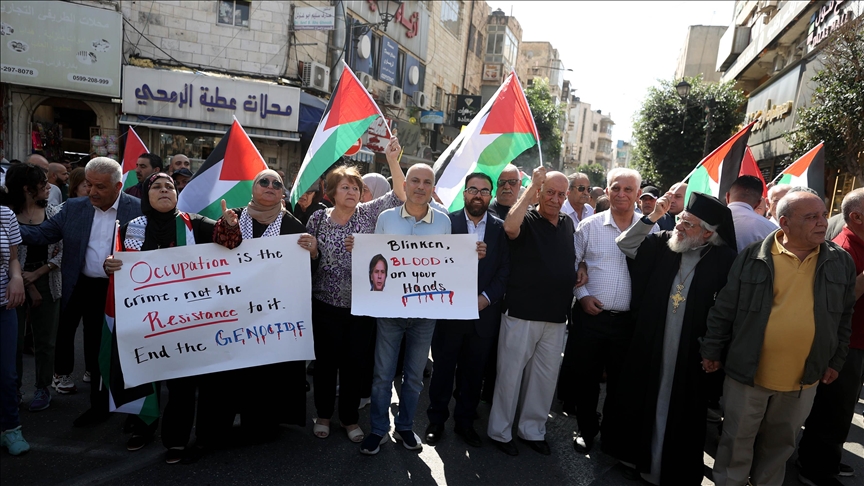The Israeli military said late Sunday that it had cut off northern Gaza from the south, calling it a “significant stage” in the war. On Monday, it said that aircraft struck 450 targets overnight and ground troops took over a Hamas compound. A one-way corridor for residents to flee south remains available, according to the military, for the hundreds of thousands of Palestinians who remain in Gaza City and other parts of the north.
Some 1.5 million Palestinians, or around 70% of Gaza's population, have fled their homes since the war began. Food, medicine, fuel and water are running low, and United Nations-run schools-turned-shelters are beyond capacity, with many sleeping on the streets outside.
Mobile phone and internet service went down overnight, the third territory-wide outage since the start of the war, but was gradually restored Monday, according to the Palestinian telecom company Paltel and internet access advocacy group NetBlocks.org. Aid workers say the outages make it even harder for civilians to seek safety or even call ambulances.
Israel has so far rejected U.S. suggestions for a pause in fighting to facilitate humanitarian aid deliveries and the release of some of the estimated 240 hostages seized by Hamas in its raid. Israel has also dismissed calls for a broader cease-fire from increasingly alarmed Arab countries — including Jordan and Egypt, which made peace with Israel decades ago.
After days of intense diplomacy around the Middle East, U.S. Secretary of State Antony J. Blinken wrapped up his tour of the region Monday, saying efforts to secure a humanitarian pause, negotiate the release of hostages and plan for a post-Hamas Gaza were still “a work in progress,” without pointing to any concrete achievements.



/cloudfront-us-east-2.images.arcpublishing.com/reuters/NVSKDB45N5KKHDM23FA6NHMQYA.jpg)

